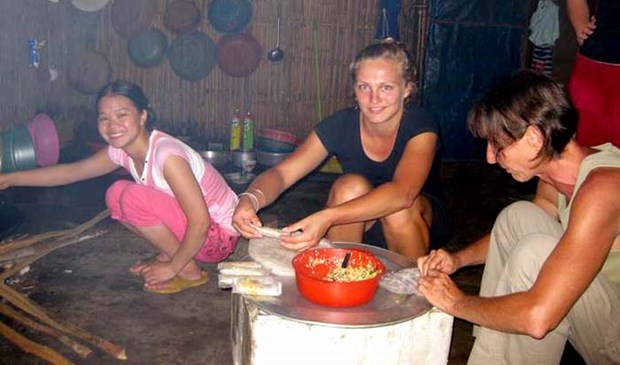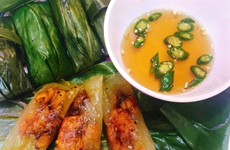Can Tho farmers’ engagement help boost responsible tourism
Engaging farmers in tourism is a new way to boost the sustainable development of the non-smoking industry in the Mekong Delta city of Can Tho.
 Illustrative image (Source: baocantho)
Illustrative image (Source: baocantho)Muoi Cuong home-stay service run by Lam The Cuong in My Ai village, My Khanh commune, Phong Dien district, is a favorite destination for tourists to Can Tho. Boasting 1.2 hectares of farm with about 2,000 cocoa trees and other fruit trees, Cuong’s home has four rooms for visitors.
Each year, his home welcomes about 600 visitors, mostly foreigners, with the peak season from September-December when the facility serves about five people per day, said Cuong, adding that he has coordinated with about 50 travel agents to promote the site.
Previously, the traditional occupation of Cuong’s family was planting cocoa trees and processing cocoa products. His family was the first to begin producing cocoa in the country in the 1960s.
In 2012, when My Khanh commune launched the new-style rural area building programme in tandem with tourism development, Cuong’s family became a pioneer in implementing community tourism.
Thanks to free training courses, including those organised by the EU-funded Environmentally and Socially Responsible Tourism Capacity Development Project (EU-ESRT), Cuong has been equipped with basic skills to serve tourists and practice sustainable tourism by taking advantage of his locality and family’s conditions.
The model has helped Cuong’s family increase their income significantly, while boosting sales of their cocoa products.
Another attractive home-stay venue in Can Tho is Vang Xang fruit garden of Tran Van Lien, also known as Nam Lien, in Nhon Loc 1 village, Phong Dien town, which was opened to tourists three years ago.
Nam Lien’s garden covers over four hectares with 30-40 kinds of fruit and ornamental trees. It was developed to become a modern ecotourism site but is a typical green space of the southwest region. With hard work, Lien has ensured every corner of the garden is beautiful.
Along with visiting the garden with Lien who introduces each kind of tree, visitors can also enjoy fresh fruits and join farming activities.
Cuong, Nam Lien and other local households also use social networks such as Facebook to promote their products.
According to Vo Thanh Giup, Director of the Trade and Tourism Promotion Agency of Phong Dien district, the province has 42 tourist sites, including six community tourism facilities, mostly in My Khanh commune.
Community tourism, which was launched in the locality in 2013, has created jobs for locals and increased their incomes.
Giup attributed the fruitful results to support from the EU-ESRT project, which has given locals two training courses, helping improve their service skills.
The EU-ESRT is the largest tourism technical support programme in Vietnam, aiming to popularise responsible tourism in Vietnam, contributing to enhancing the competitiveness of the sector.
In 2013-2015, the project was implemented in the Mekong Delta localities of An Giang, Can Tho and Kien Giang.-VNA













